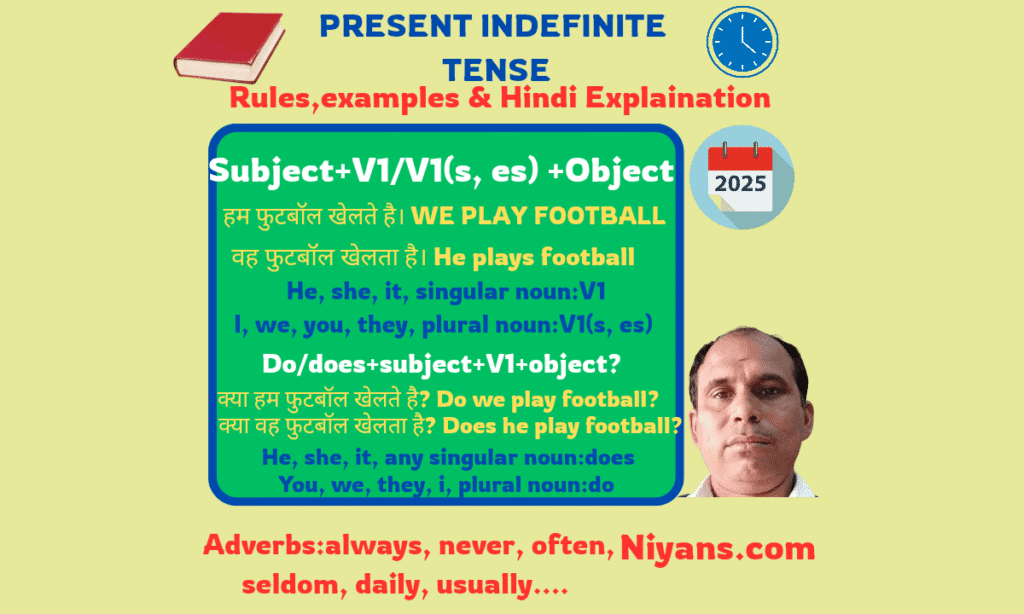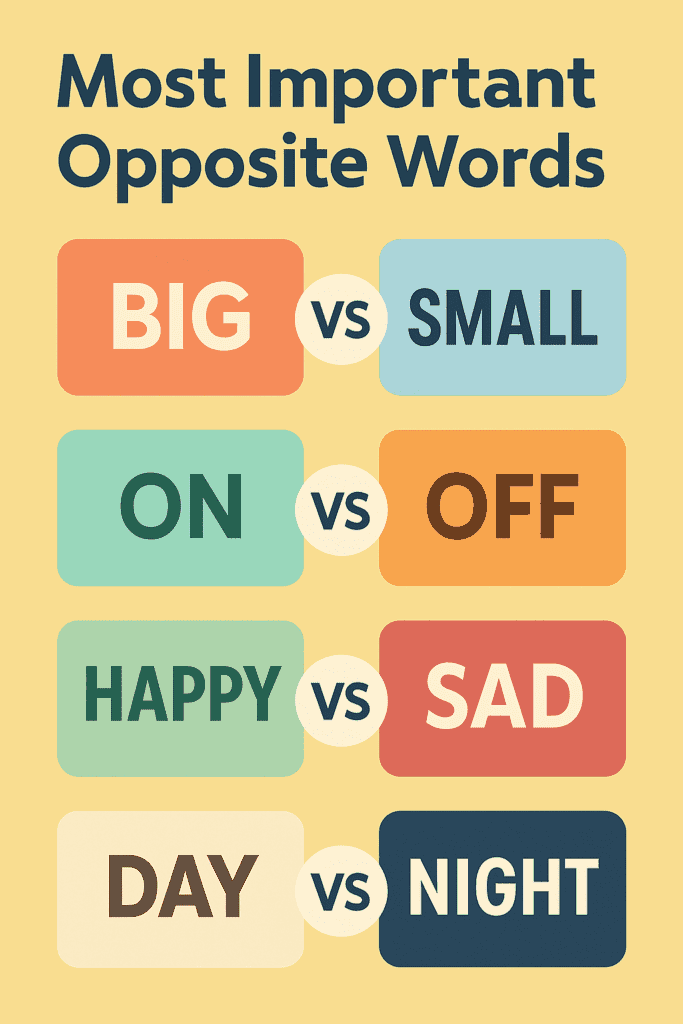Introduction: Past Perfect Tense
Past Perfect Tense का उपयोग तब किया जाता है जब हमें भूतकाल (Past) में घटित दो कार्यों में यह बताना हो कि कौन-सा कार्य पहले हुआ था और कौन-सा बाद में।Past Perfect Tense यह दर्शाता है कि कोई काम अतीत में किसी निश्चित समय या अन्य कार्य से पहले ही पूरा हो चुका था।
उदाहरण के साथ समझिए:
तूफ़ान आने से पहले हम घर पहुँच गए थे।
We had reached home before the storm came.
उपरोक्त sentence को हम दो sentence बना लेते है।
1.पहले हम घर पहुँच गए थे।
2.तूफ़ान आने से
यहाँ “पहले हम घर पहुँच गए थे। ” पहले हुआ कार्य है – Past Perfect
“तूफ़ान आने से” बाद में हुआ कार्य है – Past Indefinite
पहले पूरा हुआ कार्य – Past Perfect में
बाद में हुआ कार्य – Past Indefinite में
Past Perfect Tense की सबसे महत्वपूर्ण विशेषता यह है कि इसके साथ Past Indefinite tense का sentence भी होता है।
Past Perfect Tense के साथ Past Indefinite क्यों आता है?
जब भूतकाल (past) में दो क्रियाएँ (actions) होती हैं, तो:
- जो पहले हुई होती है, उसे Past Perfect Tense में लिखा जाता है।
- जो बाद में होती है, उसे Past Indefinite Tense में लिखा जाता है।
ऐसा इसलिए किया जाता है ताकि यह स्पष्ट हो सके कि कौन-सा कार्य पहले हुआ और कौन-सा बाद में।
Structure:
Past Perfect:
Subject + had + V3 + object
Past Indefinite:
Subject + V2 + object
Before और After का उपयोग
1. Before का उपयोग:
जब हम यह बताना चाहते हैं कि एक कार्य दूसरे कार्य से पहले हो चुका था।
Structure:
Past Perfect + before + Past Indefinite
उदाहरण:
- I had eaten before she came.
उसके आने से पहले, मैं खाना खा चुका था। - They had gone out before it started raining.
बारिश शुरू होने से पहले, वे बाहर जा चुके थे।
2. After का उपयोग:
जब हम यह बताना चाहते हैं कि एक कार्य दूसरे कार्य के बाद हुआ था।
Structure:
Past Indefinite + after + Past Perfect
उदाहरण:
- She came after I had left.
मेरे जाने के बाद, वह आई। - We started the game after they had arrived.
उनके पहुँचने के बाद, हमने खेल शुरू किया।
Compare करके समझिए:
Sentence with before | Sentence with after |
He had finished work before I called him. | I called him after he had finished work. |
We had gone to bed before the lights went out. | The lights went out after we had gone to bed. |
मतलब वही रहता है, बस क्रम (sequence) को before/after से अलग-अलग ढंग से व्यक्त किया जाता है।
Quick Tips:
Word | Meaning | किसके पहले आता है? |
Before | पहले | Past Indefinite |
After | बाद में | Past Indefinite |
Helping Verb: Past Perfect Tense
Past Perfect Tense की एकमात्र सहायक क्रिया had” ही (helping verb) होती है।
यह सभी subjects (I, You, He, She, They, We, It, singular & plural) के साथ एक ही रहती है — had.
Verb: Past Perfect Tense
Past Perfect Tense में Verb की 3rd Form का उपयोग होता है?
V1 (Base Form) | V2 (Past Simple) | V3 (Past Participle) |
go | went | gone |
eat | ate | eaten |
write | wrote | written |
come | came | come |
speak | spoke | spoken |
see | saw | seen |
do | did | done |
|
|
|
Sentence Structure:
Affirmative Sentences of Past Perfect Tense
Subject + had + V3 (Past Participle) + object + (other words)
English Sentence | Hindi Translation |
I had eaten my lunch. | मैंने अपना दोपहर का खाना खा लिया था। |
She had gone to school. | वह स्कूल जा चुकी थी। |
They had finished the work. | उन्होंने काम पूरा कर लिया था। |
We had seen that movie. | हमने वह फ़िल्म देख ली थी। |
He had written a letter. | उसने एक पत्र लिख लिया था। |
You had cleaned the room. | तुमने कमरा साफ कर लिया था। |
The train had left before I reached. | मेरे पहुँचने से पहले ट्रेन छूट चुकी थी। |
Riya had cooked dinner. | रिया ने रात का खाना बना लिया था। |
It had started raining. | बारिश शुरू हो चुकी थी। |
The teacher had explained the topic. | शिक्षक ने विषय समझा दिया था। |
Negative Sentences of Past Perfect Tense
Structure:
Subject + had not + V3 (Past Participle) + object + (other words)
English Sentence | Hindi Translation |
I had not eaten my lunch. | मैंने अपना दोपहर का खाना नहीं खाया था। |
She had not gone to school. | वह स्कूल नहीं गई थी। |
They had not finished the work. | उन्होंने काम पूरा नहीं किया था। |
We had not seen that movie. | हमने वह फ़िल्म नहीं देखी थी। |
He had not written a letter. | उसने पत्र नहीं लिखा था। |
You had not cleaned the room. | तुमने कमरा साफ नहीं किया था। |
The train had not left before I reached. | मेरे पहुँचने से पहले ट्रेन नहीं छूटी थी। |
Riya had not cooked dinner. | रिया ने रात का खाना नहीं बनाया था। |
It had not started raining. | बारिश शुरू नहीं हुई थी। |
The teacher had not explained the topic. | शिक्षक ने विषय नहीं समझाया था। |
Interrogative sentences
Yes/No Type Questions
Structure:
Had + subject + V3 + object?
English | Hindi |
Had he eaten? | क्या उसने खा लिया था? |
Had they gone? | क्या वे जा चुके थे? |
Had you seen the movie? | क्या तुमने वह फिल्म देखी थी? |
WH-Word Type Questions
इन वाक्यों की शुरुआत WH-word (what, when, why, where, who, etc.) से होती है, उसके बाद had + subject + V3
Structure:
WH-word + had + subject + V3 + object?
English | Hindi |
Where had he gone? | वह कहाँ गया था? |
What had you done? | तुमने क्या किया था? |
Why had she cried? | वह क्यों रोई थी? |
Negative-Interrogative Sentences
Yes/No Type Negative-Interrogative
structure:
Hadn’t / Had not + subject + V3 + object?
English | Hindi |
Hadn’t he eaten? | क्या उसने खाना नहीं खा लिया था? |
Hadn’t they gone? | क्या वे नहीं गए थे? |
Had not you finished the work? | क्या तुमने काम पूरा नहीं किया था? |
- WH-Word Type Negative-Interrogative
ऐसे वाक्य WH-word से शुरू होते हैं, फिर “hadn’t / had not” + subject + V3 होता है।
Structure:
WH-word + hadn’t / had not + subject + V3 + object?
English | Hindi |
Why hadn’t he come? | वह क्यों नहीं आया था? |
Where had not they gone? | वे कहाँ नहीं गए थे? |
What hadn’t you done? | तुमने क्या नहीं किया था? |
Use of Past Perfect Tense और Past Indefinite Tense
Past Perfect Tense और Past Indefinite Tense दोनों का प्रयोग एक ही वाक्य में किया गया है। ये वाक्य उस स्थिति को दर्शाते हैं जहाँ दो कार्य भूतकाल में हुए, और एक कार्य दूसरे कार्य से पहले हुआ।
Structure:
Past Perfect (पहले हुआ कार्य) + Past Indefinite (बाद में हुआ कार्य)
English Sentence | Hindi Translation |
I had eaten my lunch before he came. | उसके आने से पहले,मैंने अपना खाना खा लिया था, |
She had gone to school before the bell rang. | घंटी बजने से पहले वह स्कूल जा चुकी थी, |
They had finished the work before we arrived. | हमारे आने से पहले, उन्होंने काम पूरा कर लिया था । |
We had reached home before it started raining. | बारिश शुरू होने से पहले, हम घर पहुँच गए थे । |
He had left the room when I entered. | जब मैं अंदर आया, वह कमरा छोड़ चुका था। |
नीचे Past Perfect Tense पर आधारित “Correct Form of Verb” की अभ्यास (Exercise) दी गई है। इसमें आपको क्रिया (verb) का सही रूप चुनना है — यानी had + V3 (past participle form) का सही प्रयोग करना है।
Exercise:
Fill in the blanks with the correct form of the verb
(Bracket में दिए गए verb का सही रूप भरें)
Questions:
- She ______ (go) to school before it started raining.
- I ______ already ______ (eat) my lunch when he came.
- They ______ (finish) the work before the teacher arrived.
- We ______ (reach) the station before the train left.
- He ______ (not complete) his homework before the exam began.
- The movie ______ (start) when we entered the hall.
- I ______ (see) that place before you told me about it.
- The students ______ (leave) before the bell rang.
- He ______ never ______ (visit) Delhi before last year.
- You ______ (clean) the room before the guests came.
Answer Key:
- had gone
- had already eaten
- had finished
- had reached
- had not completed
- had started
- had seen
- had left
- had never visited
- had cleaned
Conclusion (निष्कर्ष)
Past Perfect Tense का उपयोग तब किया जाता है जब हमें दो भूतकालीन क्रियाओं में से पहले पूरी हुई क्रिया को व्यक्त करना होता है।
इसमें हमेशा “had + V3 (past participle)” का प्रयोग होता है।
सभी subjects (I, you, he, she, we, they, etc.) के साथ had ही आता है।
बाद की क्रिया को सामान्यत: Past Indefinite (V2) में लिखा जाता है।
मुख्य बातें याद रखने के लिए:
- दो Past actions में से जो पहले हुआ – Past Perfect
- जो बाद में हुआ – Past Indefinite
- अक्सर इसका प्रयोग before, after, when, by the time आदि time expressions के साथ होता है।
उदाहरण (Example):
- I had finished my homework before the teacher came.
मैंने होमवर्क खत्म कर लिया था, इससे पहले कि टीचर आए।
Final Line:
Past Perfect Tense हमें भूतकाल की घटनाओं का क्रम (sequence) स्पष्ट रूप से बताने में मदद करता है। यह दिखाता है कि कोई कार्य दूसरे से पहले पूरा हो चुका था।


